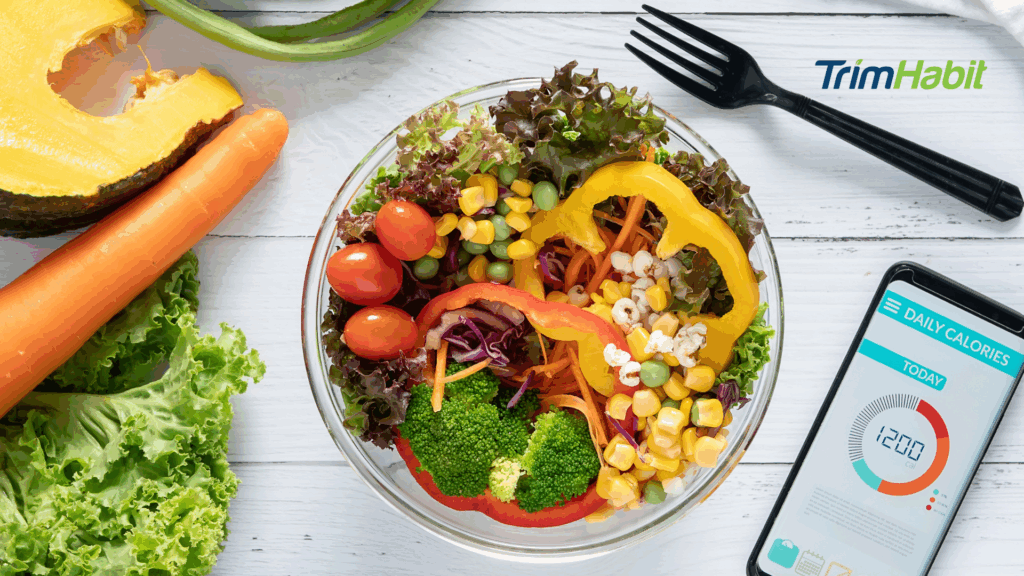Food is usually the highlight of the party, bringing people together and creating memories over shared meals. Whether it’s a family gathering, a night out with friends, or a festive celebration, social events often revolve around delicious dishes and indulgent treats. But what if you’re trying to stick to an intermittent fasting routine?
Managing these occasions without straying from your fasting goals can get challenging.
That’s why we’ve put together intermittent fasting tips for managing social events and dining out so you can enjoy your time without compromising your health objectives.
But before we get to that, let’s first understand the basics of intermittent fasting.
How Intermittent Fasting Works
Intermittent fasting is all about switching between periods of eating and fasting, often called “patterns” or “cycles.” It’s not about starving yourself; it’s about cutting back on calories for set periods. The idea is that your body gets used to smaller portions and reduces cravings for unhealthy snacks, as long as you stick to a healthy diet.
Intermittent fasting doesn’t mean you have to give up your favorite foods. It’s more about timing your meals. There are several approaches, and it’s all about finding what works best for you. Be ready for some trial and error, as the fasting duration should fit your eating habits and lifestyle.
Types of Intermittent Fasting
- Alternate-Day Fasting: This method involves alternating between fasting days and non-fasting days, referred to as eating or feeding days. For example, you might fast on Monday, Wednesday, and Friday while eating normally on the other days.
- Whole-Day Fasting: This approach involves complete fasting or consuming up to 25% of your daily calories for 1-2 days per week, with no food restrictions on the other days. A common version of this is the 5:2 diet, where you eat normally for five days of the week and limit your intake to 400-500 calories on the other two days.
- Time-Restricted Eating: In this method, you follow a daily meal plan with a specific time frame for eating and fasting. For instance, you might eat all your meals between 8 am and 3 pm, fasting for the remaining hours of the day.
Health Benefits of Intermittent Fasting
- Weight Loss: Intermittent fasting can aid in weight loss by reducing overall calorie intake and increasing fat burning. It may also help improve metabolic health and promote fat loss while preserving muscle mass1,2.
- Improved Insulin Sensitivity: Fasting periods can enhance insulin sensitivity, lowering blood sugar levels and reducing the risk of type 2 diabetes. This can lead to better blood sugar control and improved overall metabolic health3,4.
- Cellular Repair and Autophagy: During fasting, cells undergo repair processes and autophagy, where old and damaged cellular components are removed. This can contribute to longevity, improved cellular function, and protection against various diseases5,6.
- Heart Health: Intermittent fasting has been associated with improvements in heart health markers such as blood pressure, cholesterol levels, and inflammatory markers. These benefits may reduce the risk of heart disease and related complications7,8.
Intermittent Fasting Tips For Managing Social Events And Dining Out
One significant challenge for newcomers and experienced practitioners is managing social events and dining out while intermittent fasting. However, one of intermittent fasting’s many benefits is its versatility.
To cope with socializing and dining out while fasting, consider the following strategies:
Time Your Fast
Consider timing your fasting window strategically to align with social events or meals. For example, if you have a dinner event planned in the evening, you can adjust your fasting schedule to end shortly before the event starts. This way, you can enjoy your meal without breaking your fast and still stay within your designated eating window.
Bring Your Own Snacks
To ensure you have fasting-friendly options available, consider bringing a small snack or portable food item with you. For instance, you might pack a handful of nuts, a protein bar, or a piece of fruit that fits your fasting plan. Having these snacks on hand can be especially helpful if the event’s menu lacks suitable choices for fasting.
Be Flexible
While consistency is important in intermittent fasting, it’s also crucial to be flexible, especially during social gatherings. If you find yourself in a situation where sticking strictly to your fasting schedule is challenging, don’t stress over minor deviations. Focus on making healthier choices overall and resume your fasting routine as soon as possible.
Choose Healthier Options
Having flexibility with intermittent fasting doesn’t mean you can consume anything without consideration, even in special occasions or dinning out. When choosing foods during these instances, prioritize options that are rich in protein and fiber, such as grilled chicken, fish, tofu, or legumes paired with a variety of colorful vegetables. These choices are nutritious and help keep you full and satisfied, reducing the likelihood of temptation to overeat or indulge in unhealthy snacks.
Socialize
Instead of placing all your attention on food, shift your focus to socializing and enjoying the company of others. Engage in meaningful conversations, participate in activities, and connect with friends or family members without letting food choices dominate the experience. In prioritizing social interaction, you can still have a fulfilling time during events while staying mindful of your fasting goals.
Communicate Your Needs
Dining out with family and friends can be challenging, as these occasions often revolve around eating. In this case, let them know about your intermittent fasting plan. They can be supportive and understanding, which can make it easier to stick to your schedule, even during family meals or when dining out with friends. Explain the benefits you’re experiencing and how important it is for you to follow this routine. This can encourage them to accommodate your eating windows and even plan meal times that work for everyone.
Other Challenges In Intermittent Fasting
While social occasions can be managed during intermittent fasting, it’s important to acknowledge that there are more challenges associated with this diet that need to be considered. Some difficulties may include:
- Hunger and Cravings: One of the main challenges with intermittent fasting is dealing with hunger and cravings, especially during fasting periods. Your body might take some time to get used to the new eating schedule, leading to increased feelings of hunger. Managing cravings for unhealthy foods can also be tough, as your body might crave quick energy sources like sugar or processed snacks. To handle this, focus on staying hydrated, eating filling, nutrient-rich foods during eating times, and practicing mindfulness.
- Energy Levels: Another common issue is fluctuations in energy levels, particularly during the initial phases of intermittent fasting. Some individuals may experience fatigue, dizziness, or lack of focus as the body adapts to changes in meal timing. It’s essential to listen to your body’s cues and adjust your fasting schedule or meal composition accordingly. Prioritizing adequate sleep and regular physical activity, and again, incorporate nutrient-rich foods to support sustained energy levels throughout the fasting period.
- Eating Disorders: Intermittent fasting can also pose challenges related to emotional eating patterns. Stress, boredom, or emotional triggers may lead to cravings for comfort foods or overeating during eating windows. Developing awareness of emotional triggers, practicing mindful eating techniques, and seeking support from a healthcare professional or counselor can be beneficial in addressing emotional eating habits.
- Nutrient Intake: Making sure you get enough nutrients during your eating windows is important for your health while intermittent fasting. Some people may struggle to meet their daily nutrient needs, especially if they’re eating fewer meals or have specific dietary restrictions. Consulting with a healthcare professional or nutritionist to create a balanced meal plan, including a variety of nutrient-rich foods and healthy fats, and considering supplements if necessary, can help address this challenge.
- Consistency and Motivation: Maintaining consistency and staying motivated throughout a fasting journey can be a hurdle for some individuals. It’s normal to have periods where your motivation wavers or you get distracted, which can disrupt your fasting routine. Setting achievable goals, tracking your progress, seeking support from friends or online communities, and celebrating small victories can boost your motivation and help you stick to intermittent fasting long-term.
Wrap Up
While intermittent fasting has many benefits, managing social events and dining out can be tricky. The flexibility of intermittent fasting plans allows you to adjust and still enjoy these occasions.
Timing your fast to fit social events, staying flexible, choosing healthier food options, bringing your own snacks, and focusing on social interactions can help you stick to your intermittent fasting schedule even during family meals or outings with friends.
Sharing your fasting goals with your family and friends can also help, as they can provide support and understanding. These tips can help you maintain your fasting routine and enjoy a healthy lifestyle.









